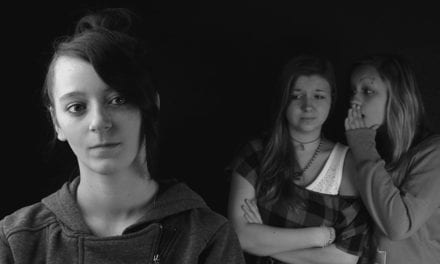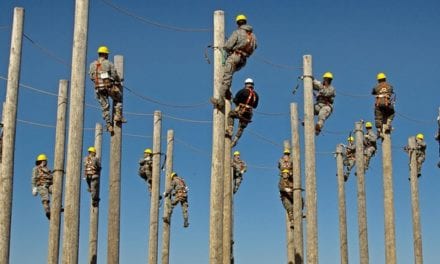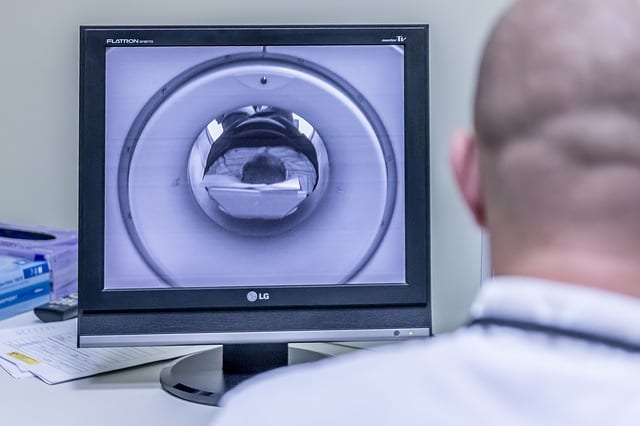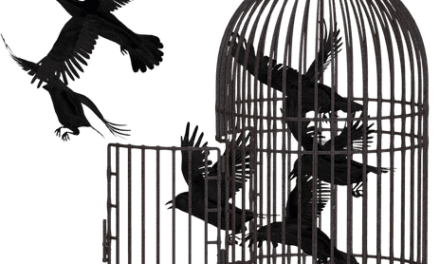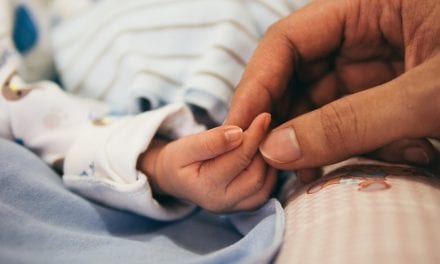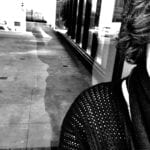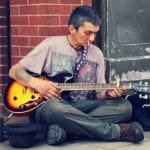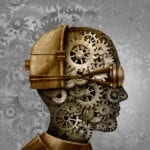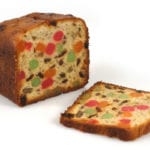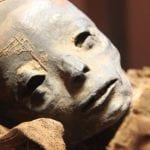I love it when I invade people and they’re still ignorant. They feel the need to rush off and learn all about me and their options.
But you do know about me. And you fear me. You’re even afraid to use my name. I will happen to you, to your family, or to someone you know, because I am inescapable. I am inescapable because once I invade, I destroy, and with luck – my luck not yours – I kill.
And one other thing – if I’m successful when I invade the first time, my preference is to remain. Sometimes I act quickly. Often, I remain undiscovered. Other times, I strike, then hide and lie in wait.
David said Nicole was his north star, and that he had loved her all his life – even though he’d only known her for about nine years. He didn’t know me yet, but I would be with him for the rest of his life.
He was in pain. But, hell, they both were. For weeks, each of them, as a matter of course, swallowed six to eight Motrin every morning.
They had lost weight. His cheeks were concave, his cheek bones were the most prominent part of his face – not in a chiseled sense, but in a Buchenwald sense. Neither of them was eating much. She subsisted on bread and peanut butter. He tolerated only rice and decarbonated 7-Up.
David was introduced to me when he was in a medical exam chair. The doctor moved the lamp closer, adjusted his lighted headband magnifier, then leaned forward. He could hear the doctor inhale, felt the light become more intense, then saw a silhouette lean back. “Good God,” said the doctor. He mumbled something else, then said, “I’ll be right back,” and walked out.
The doctor left the exam room door open. From his office next door, he asked for someone by name. Then silence. Then, “Ed, I have a patient here with a growth-” David was unable to catch what was said, then, “I’ve never treated it before. Should I take a biopsy?”
Alone in the exam room, David muttered to himself, “What the hell? Cut into me? Today?” He froze.
Silence. Then the doctor’s voice, “You will? When? I’ll tell him.”
From that point on, David remembered only snippets. Rare. Serious. M.R.I. on Monday. I’ll walk you out. They’re really good over there. That’s the spirit.
And, right then, I knew I had done enough. All I needed to do now was hang around and enjoy my work unfold. This is the part I like best. It happens every time. And it happened to David: First his mind went blank. Then anxiety crept in; then the flood of options—none of which ever work, because, once I invade, I’m going to do what I am perfectly designed to do. They can cut, burn, and drug me, but all it will do is slow me down. And then only a little, because by then I’ve either done my damage, or I will hide, and then strike. Even if the person lives, I’ve damaged them. What follows next is an engulfing fear which passes quickly but leads either to a neurosis or a mood disorder – both of which will be laden with terror. But they should be terrified. And all because of me.
On Monday, David, flat on his back inside a black tube in a dimly-lighted room in the basement of a hospital, was handed a cord with a button. If he panicked, he was to push it to signal those on the other side of the wall. Then came the metallic sound of the door closing.
Within moments, he did panic; and he did press that button, but he did not move. They had restrained his head, so he was forced to remain inside the tube. The thuds, pings, and reverberations seemed to continue forever. Then – a silence. Then – a rumbling. Loud. Louder. Inescapable. Something moved inside him. Then came a wet, muffled thump. Again, and again – thump, thump, thump. It was almost rhythmical. He strained his eyes to look down at his chest. He saw movement. A rise and a fall, then a higher rise, then a depression. He pressed the button again and held it down. “Something is moving inside me. I can see it in my chest.”
He heard no response It took him a moment to realize he was sliding along the track and out of the black tube.
“Stay flat. Don’t move yet. Wait until we release the restraints.”
Finally, he was directed to sit up.
“You will have to get a prescription from your doctor for us to continue. We’ll reschedule you after he calls.”
“Prescription for what?”
“Valium.”
Then his operation, then the recovery, then the recurrence, then the chemo, then the nausea, then I returned.
~~~OOO~~~
Weeks earlier, I watched David with Nicole in her doctor’s office – she on the exam table, tight as a bow, her right foot tapped so rapidly it seemed to leave trails. David on a side chair hunched forward holding her hand. He suppressed a liquid cough.
The doctor’s eyes were locked on a single sheet of paper. She looked up, scooted her exam stool closer, and, after clearing her throat, said, “The biopsy confirmed the initial diagnosis.” Nicole grimaced. Then the doctor gave it a number – IV.
David froze, and had to force himself to breath. He submerged what he thought was fear – acidic stomach, headache-inducing blood pressure, dry mouth, tight shoulders, and a heart that pounded so hard, I saw his pulse throb on his wrists. He looked fragile and breakable. Once again, he swallowed to quiet his cough.
The doctor’s practiced eyes caught Nicole’s grimace, “I know you’ve been told this is rare, and it is, but we deal with it a lot here.” As usual, the doctor avoided using my name.
Nicole asked questions with a voice so weak and underused the doctor had difficulty hearing her. She answered Nicole’s questions, then said, “You will want to be at the hospital Wednesday evening. We’ll operate Thursday morning. Our office will arrange everything.”
Driving home from the hospital late Wednesday evening, David’s pendulum was swinging from denial to depression and back again. He wanted to believe all this had either happened to someone else or had been in another life. He was seeing moving silhouettes of people no longer with him. He glanced into the rear-view mirror again but saw nothing. He was unsure if this was real, his imagination, or a dream. Tonight, he was not sure of anything.
David’s tires slapped against the crests and falls of an ill-maintained street, then he hit a curb. “Well, hell,” he said, then jerked the steering wheel to the left. The car bounced back onto the street. He stopped, raised his left hand, began to extend his middle finger, remembered his wife. He paused, closed his hand, reached toward the passenger side of the car; and then, almost as if it were a requirement, he smiled.
He was familiar with the road home, but, that night, buried by the recent events, he drove past his turn. Blocks later, he looked to the right and saw tall shadows, four to five stories high. He stopped the car and stared. Then he froze and looked straight at the ruins of the Roman Coliseum. “Oh no, hell no.” He flipped a U to escape.
He had not seen the sign near the construction site, FUTURE HOME OF CAROLINAS PANTHERS.
~~~OOO~~~
David was not at home when the phone rang on Thursday morning. In her room at the hospital, Nicole said in a frightened voice, “Where are you? It’s almost five o’clock.” At that very moment, David entered the hospital parking garage.
I watched him walk through that dim, frigid garage where the chill in the air was at a point of discomfort, needing only a modest wind to transform it into a threat. The minimal lighting served as his guide to the elevators.
He heard the wind inside that open hospital garage, felt a chill, inhaled, coughed, coughed again, this time it was productive. He felt unsteady and had difficulty standing. Inside the elevator, momentarily confused by the control panel’s hieroglyphics that demanded decisions – stars, X’s, circles, red lights, green lights, red arrows, black arrows – he finally deciphered the correct button.
From elevator through corridors with maroon stripes, next to yellow stripes, next to green stripes, multiple signs hanging from the ceiling directed him to follow the yellow stripe to pediatrics, the green stripe to maternity. He chose the maroon stripe to surgery.
The surgical hallway was only marginally brighter than the parking garage. Over-refrigerated air was overlaid with disinfectants and the pheromones of fear. Flashes of blues, greens, and whites from staff uniforms distracted him, and he failed to notice the rolling machines in the hallway next to wheelchairs and walkers. Past darkened room after darkened room with doors ajar, he saw only shadowed profiles.
A sharp pain shot through his right hand. “Jesus, not now,” he said. He had scraped against a crash cart. Again, he froze, clasped his hands as if in prayer – his eyes raised not toward the heavens, but on the two medical assistants in the hallway. They stopped talking in their personal, animated way when he approached.
The smile on the older one’s face morphed into a parallel line. In a well-practiced manner, she leaned toward David, lowered her voice to answer his question, “Your wife is ready now.”
He straightened himself, assumed his version of a confident, positive man, attempted to swallow his terror, and hoped he exuded the positivity requisite for the day. Only then did he walk into Nicole’s room.
Her room was preternaturally bright. When his eyes adjusted, he winced. He repressed his reaction to the needles in her veins and the red spider-like stains that leaked from under the tape on her hand. Emotions blanketed the room, then seeped inside him. His head, heart, hands became restless, trembling, clammy.
David looked at Nicole’s face – beautiful as always, and, surprisingly, layered with relief. “You’re here.” She smiled and wiggled her fingers toward him. Unable to catch his breath, David leaned toward the hospital bed, hugged Nicole and kissed her.
“Hey, teach,” said the short, stocky man in scrubs, who had ridden with them in the hospital elevator the night before, and remembered Nicole was a teacher. He placed his hand on her back, “Let me help.” He waited a moment until she steadied, then eased her onto the transport bed and adjusted the straps. He slowly placed her I.V. bags and tubes on the stainless-steel hooks attached to the bed. “Let’s all go.” He patted her shoulder and gestured for David to follow.
After the anesthesiologist walked into the room, made his pronouncement, then abruptly left, Nicole said, sotto voce, “What an asshole.” David laughed. For a moment, the trembling stopped.
Within minutes, the surgeon knocked, came in, talked with them, asked if there were any questions, told them the approximate timeline, initialed the surgery site with a purple pen, then left.
A woman with a white on blue nametag knocked, approached the bed, “I’m your nurse. I’ll be with you all day.” She held a syringe in her right hand. “The doctor ordered something that will help.”
When she extracted the needle, Nicole emitted an extended, “Whew,” smiled, then laughed. They kissed, hugged, and, as she was rolled toward the surgery suite, Nicole sat upright, turned, waived to David, smiled, laid back, raised her hand and waived again.
Another nurse said to David, “It’s the liquid Valium. It’s a godsend.” He walked toward a wall, leaned against it, began to slide to the floor. The nurse steadied him, “It’s alright. This happens sometimes to husbands. Have you eaten?”
He nodded and followed her to the crowded waiting room. She spoke to a candy striper behind the small desk. After she wrote his name on a sheet, the nurse guided him into a smaller room with only four other people. They entered, and all eyes focused on David and the nurse with that universal hospital waiting-room reaction of hope and fear. Hope that a surgeon would enter with good news, and fear that a surgeon wouldn’t.
Hours passed. David could no longer follow the flow of words on the pages of the dated magazines with posed photos and captions about tragic lives of west coast people who missed some event or were overlooked at some awards ceremony. Another hour and a half passed before Nicole’s surgeon stood at the door of the waiting room. Again, all heads turned. She nodded to David.
They met next to a bank of phones secluded from the main corridor. David supported himself against the wall.
“I just left surgery. Your wife’s lymph nodes need to go to the lab, but I held them, felt them, and they feel normal. But we still have to wait on the lab results.”
Unable to form word or tear, David shook the doctor’s hand, “Thank you,” and felt as if that doctor alone may have cured his wife.
~~~OOO~~~
Several days passed. “Your wife’s ready now,” said an unfamiliar voice. And even by my standards that telephone call was abrupt.
It took two more calls from unfamiliar voices. The first time they called, he ran from the building. The next day he called them, “I’m sorry. I can’t. Just a few more days, please.” They were understanding, but after a week, the calls resumed.
It was dark when he arrived. And I watched. They carried Nicole to him. He held her, but, flooded with memories of her energy, her liveliness, her smile and laughter, he merely nodded to the unfamiliar staff, and carried her to the car. He had left the coldest room he had ever been in and felt as if he brought that frigidity with him.
Of the two matching containers David placed in the car that day, one was empty. He intended to save that one for himself; and the other he planned to place on the nightstand next to their bed. The only thing he wanted was to be alone with his wife. He imagined her standing in front of the mirror preparing for bed. It would be his secret.
Inside their darkened bedroom, he saw Nicole’s reflection in the mirror. His eyes followed her as she moved toward the bed. He watched the dress fall from her shoulders. Then her silhouette disappeared. He watched her shadow move toward him. It was his secret.
And each night after that, I was there when David placed Nicole’s dress on the bed. And each night after that, I watched him lie in bed waiting for her. That was my secret.
On that final night, inside David’s preternaturally bright room, his vision had dimmed, he strained to see Nicole. In his peripheral vision, he watched her walk toward him past the machines, tubes, tape, and needles.
And I watched as David reached for the phone, but stopped, then imagined reaching for the empty container. He had not been allowed to bring either of the two containers with him. His hands pretended to caress its smooth sides. He knew the inscription by heart. Nicole wanted those words for him. They read almost the same as the one on his bedside table with the words he wanted for her.
David
1964-2006
Beloved Husband
Lover
Best Friend

